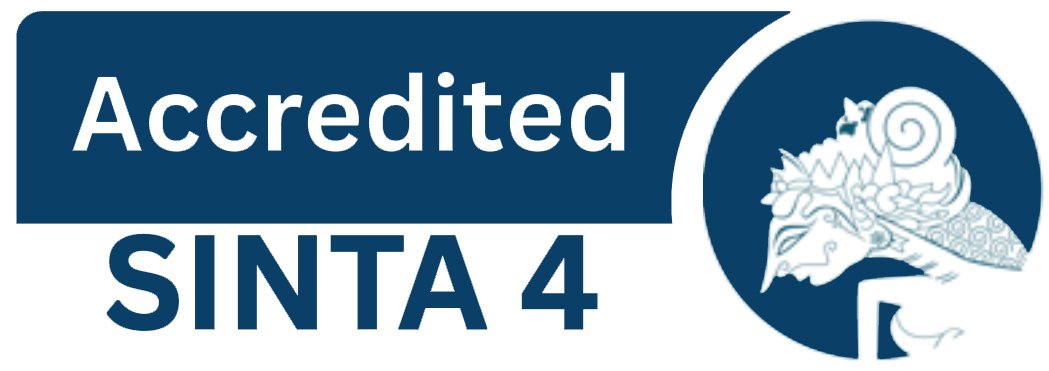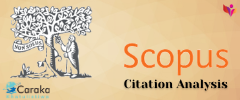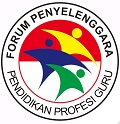Increasing Interest in Learning Mathematics Through the Technological Pedagogical and Content Knowledge (TPACK) Approach in Grade II Elementary School Students
DOI:
https://doi.org/10.22460/jpp.v4i1.27241Keywords:
TPACK, Learning Interest, Mathematics, Elementary School StudentsAbstract
The problem addressed in this research is the low interest in mathematics learning among second-grade students at SDN Demangan, which is attributed to conventional teaching methods and the minimal use of technology in the learning process. The purpose of this study is to enhance students' interest in mathematics by implementing the Technological, Pedagogical, and Content Knowledge (TPACK) approach. This study employed Classroom Action Research (CAR) using the spiral model developed by Kemmis and McTaggart, which includes planning, action, observation, and reflection stages. The research was conducted in two cycles during the even semester of the 2024/2025 academic year. Data were collected using observation and a learning interest questionnaire and analyzed using the Guttman Scale in percentage form. The results indicated a significant improvement in students' learning interest: in the pre-cycle stage, student interest was at 45% (categorized as sufficient), increased to 70% in the first cycle (high category), and reached 87% in the second cycle (very high category). The application of the TPACK approach successfully created a more engaging and enjoyable learning environment, encouraging student participation. This study concludes that the TPACK approach is effective in increasing the interest of second-grade students in mathematics learning at Demangan Elementary School, Kudus.
References
Akbar, K., dkk. (2024). Penerapan model problem based learning berbantuan komik digital untuk meningkatkan pemahaman konsep matematis siswa pada materi perkalian pecahan di kelas v sekolah dasar. Jurnal Profesi Pendidikan (JPP), 3(2). https://journal.ikipsiliwangi.ac.id/index.php/jpp/article/view/25432/7069
Arikunto, S. (2021). Penelitian Tindakan Kelas Edisi Revisi. Jakarta: Bumi Aksara.
Asih, R. M., & Muslim, A. H. (2023). Pengembangan media pembelajaran ular tangga berbasis kearifan lokal pada tema 3 subtema 2 pembelajaran 4 di kelas V SD Negeri 1 Dukuhwaluh. Jurnal Jendela Pendidikan, 3(03). https://ejournal.jendelaedukasi.id/index.php/JJP/article/view/557/167
Ermawati, D., & Riswari, L. A. (2020). Pengaruh pendekatan pmri terhadap kemampuan pemecahan masalah matematis siswa SD. JPD: Jurnal Pendidikan Dasar. https://eprints.umk.ac.id/12819/9/ARTIKEL%20PMRI%20PEMAHAMAN%20KONSEP%20%28DIANA%20ERMAWATI%29.pdf
Ermawati, D., & Zuliana, E. (2020). Implementation of open-ended problems on mathematical problem-solving skill of elementary school students. JPSD, 6(2). https://jurnal.untirta.ac.id/index.php/jpsd/article/viewFile/8798/5952
Ermawati, D., dkk. (2023). Pengaruh model discovery learning terhadap hasil belajar matematika siswa kelas IV SD 1 Dersalam. Jurnal Pendidikan, Sosial dan Humaniora, 3(2). 82-92. https://journal.unimerz.com/index.php/kapasa/article/view/356/166
Ermawati, D., dkk. (2024). The numbered head together learning model on the critical thinking ability of iv class sd students. Progres Pendidikan, 5(2). 156-161. https://prospek.unram.ac.id/index.php/PROSPEK/article/view/524/312
Ermawati, D., dkk. (2024). Pengaruh media mabarung berbasis augmented reality terhadap kemampuan bernalar kritis matematis siswa sd. SCIENTIA: Social Sciences & Humanities, 3(2). 327-333. https://amcapress.amca2012.org/index.php/sssh/article/view/324
Hidayah, N., dkk. (2024). Meningkatkan hasil belajar matematika pada siswa melalui pendekatan tpack di kelas X 11 SMA N 2 Semarang. Seminar Nasional Pendidikan Profesi Guru Universitas PGRI Semarang. 115-123. https://conference.upgris.ac.id/index.php/psnppg/article/view/6149/4577
Marleni, Lusi. (2016). Faktor-faktor yang mempengaruhi minat belajar siswa kelas VIII SMP Negeri 1 Bangkinang. Journal Cendekia: Jurnal Pendidikan Matematika, 1(1). 149-159.
Masda, M. H., dkk. (2024). Implementasi pendekatan tpack untuk meningkatkan hasil belajar ipas siswa kelas IV di SDN Labuang Baji II. Global Journal Education Science and Technology (GJST), 1. https://jurnal.sainsglobal.com/index.php/gjst/article/view/2790/1540
Maulida, B. A., dkk. (2024). Pengaruh penggunaan teknologi tpack dalam meningkatkan minat belajar matematika peserta didik sd kelas 4. Seminar Nasional dan Publikasi Ilmiah 2024 FIP UMJ.
Nasution, F., dkk. (2022). Pengertian pendidikan, sistem pendidikan sekolah luar biasa, dan jenis-jenis sekolah luar biasa. Jurnal Edukasi Nonformal, 3(2). 422-427. https://www.who.int/news-room/factsheets/detail/autism-spectrum-disorders
Prihantoro, A., & Hidayat, F. (2019). Melakukan penelitian tindakan kelas. Ulumuddin: jurnal ilmu-ilmu keislaman, 9(1), 49-60. https://jurnal.ucy.ac.id/index.php/agama_islam/article/view/283/313
Saputra, N. (2021). Penelitian tindakan kelas (M. Arif (ed.)). Yayasan Penerbit Muhammad Zaini.
Suciani, R. N., dkk. (2023). Strategi refleksi dan evaluasi penelitian tindakan kelas. Jurnal kreativitas mahasiswa, 1(2), 114-123.
Sugiyono. (2020). Metode penelitian kuantitatif kualitatif dan r&d. Bandung: Alfabeta.
Sukmawati, Fatma., Santosa, E. B., Suharno. (2022). Technological Pedagogical Content Knowledge dalam Pembelajaran Abad 21. Sukoharjo: Pradina Pustaka.
Tama, N. S., & Sumargiyani. (2022). Peningkatan motivasi belajar siswa kelas xi sma dengan model problem based learning (pbl) pendekatan tpack. Seminar Nasional Pendidikan Matematika Umt 2022. https://jurnal.umt.ac.id/index.php/cpu/article/view/6858/3558
Utomo, P., Asvio, N., & Prayogi, F. (2024). Metode penelitian tindakan kelas (ptk): panduan praktis untuk guru dan mahasiswa di institusi pendidikan. Pubmedia Jurnal Penelitian Tindakan Kelas Indonesia, 1(4), 1-19. https://edu.pubmedia.id/index.php/ptk/article/view/821/788
Downloads
Published
How to Cite
Issue
Section
License
Copyright (c) 2025 Maya Hilma Khoirunnisa, Diana Ermawati, Imada Khairunisa

This work is licensed under a Creative Commons Attribution-ShareAlike 4.0 International License.
Authors who publish with the Journal Pendidikan Profesi (JPP) agree to the following terms:
- Authors retain copyright and grant the journal the right of first publication with the work simultaneously licensed under a Creative Commons Attribution License (CC BY-SA 4.0) that allows others to share the work with an acknowledgment of the work's authorship and initial publication in this journal.
- Authors are able to enter into separate, additional contractual arrangements for the non-exclusive distribution of the journal's published version of the work (e.g., post it to an institutional repository or publish it in a book), with an acknowledgment of its initial publication in this journal.
- Authors are permitted and encouraged to post their work online (e.g., in institutional repositories or on their website) prior to and during the submission process, as it can lead to productive exchanges, as well as earlier and greater citation of published work. (See The Effect of Open Access)
Similar Articles
- Oky Prayogi, Ryan Dwi Puspita, Implementation of Constructivism-Based Game-Based Learning Model in Science Learning for Grade IV , Jurnal Profesi Pendidikan: Vol. 4 No. 1 (2025): June
- Yanuar Rafindo, Puspa Dianti, Laili Linda Hartati, Application of ICT-Based Problem Based Learning Method as a Learning Innovation for Pancasila Education to Improve Learning Outcomes of Class VII D Students of SMPN 51 Palembang , Jurnal Profesi Pendidikan: Vol. 4 No. 1 (2025): June
- Ade Nira Susilawati, Jajang Bayu Kelana, Muhammad Ghiyats Ristiana, The Use of STEM (Science, Technology, Engineering, and Mathematics) Models to Improve Elementary School Science Concept Understanding , Jurnal Profesi Pendidikan: Vol. 4 No. 1 (2025): June
- Kamilia Salsabila, Susanti Sufyadi, Agus Hadi Utama, Systematic Literature Review: The Utilization of the Edutainment Learning Model on Students’ Learning Motivation , Jurnal Profesi Pendidikan: Vol. 4 No. 1 (2025): June
- Mira Astria, Ryan Dwi Puspita, Application of Humanistic Theory Assisted by Deep Learning in Science Learning Grade 4 SDN 108/1 Sungai Rumbai , Jurnal Profesi Pendidikan: Vol. 4 No. 1 (2025): June
- Izzah Millati, Agustina Tyas Asri Hardini, Improving the Cooperation Attitude of Grade V Students Through the Application of Problem-Based Learning Model in Pancasila Education Subjects , Jurnal Profesi Pendidikan: Vol. 4 No. 1 (2025): June
- Julia Julia, Umi Chotimah, Tyas Masito Mutiara, Enhancing Learning Motivation of Grade XI.9 Students Through Zep Quiz Media in Civics Education at SMA Negeri 3 Palembang , Jurnal Profesi Pendidikan: Vol. 4 No. 1 (2025): June
- Risma Nuriyanti, Susilawati, Deceni Amelia, Abih Gumelar, The Effect of Ethnolinguistic-Based Experiential Learning Model on Critical Thinking Abilities of PGSD Students , Jurnal Profesi Pendidikan: Vol. 4 No. 1 (2025): June
- Nuraini Nuraini, Camellia Camellia, Maimun Maimun, The Implementation of Culturally Responsive Teaching (CRT) Approach to Improve Learning Outcomes and Learning Motivation of Grade XI.3 Students at SMA Negeri 1 Palembang , Jurnal Profesi Pendidikan: Vol. 4 No. 1 (2025): June
- Fattya Rosyada, Nurul Ikhsan Karimah, Analysis of Students' Misconceptions On The Characteristics of Flat Shapes Using Two-Tier Multiple-Choice Diagnostic Test in Grade V Elementary School , Jurnal Profesi Pendidikan: Vol. 4 No. 1 (2025): June
You may also start an advanced similarity search for this article.
















